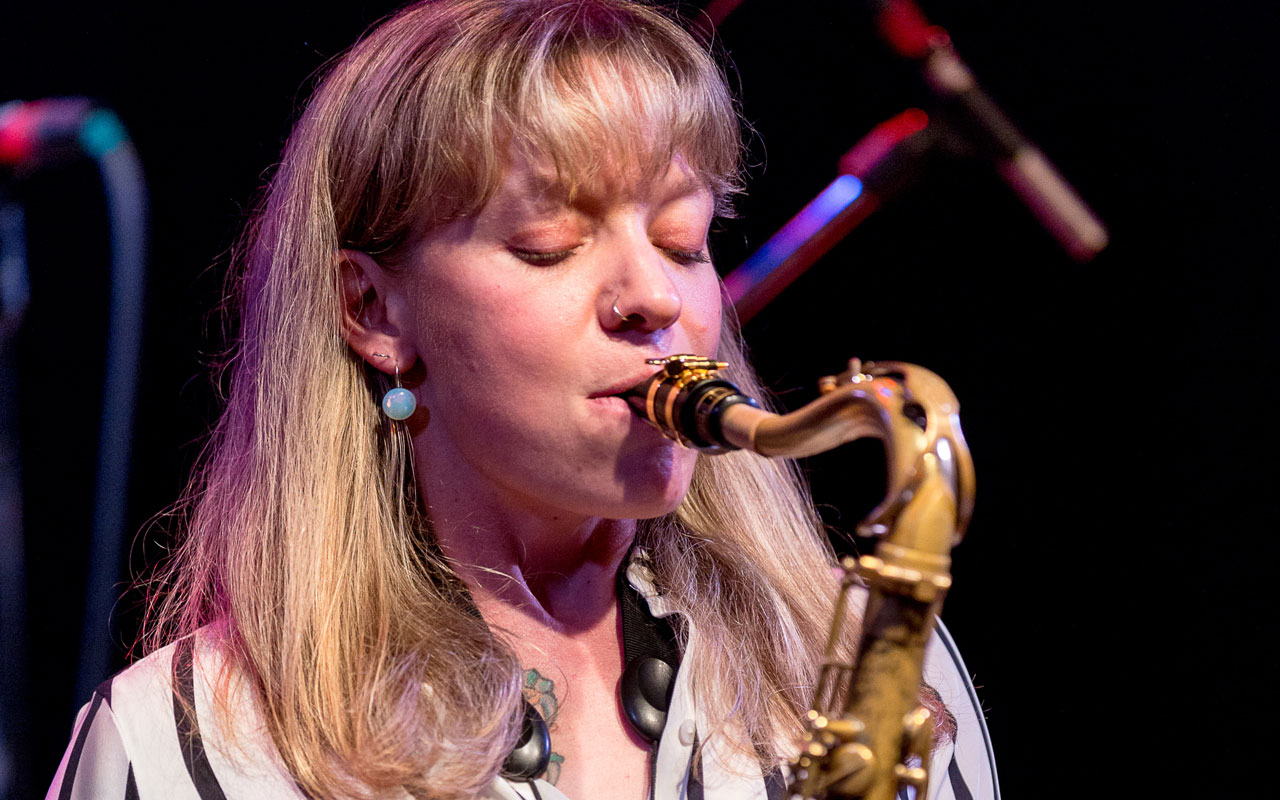
Kate Olson photo by Daniel Sheehan.
By Kate Olson
When I was a high school saxophonist, eagerly applying to college music programs, a private instructor said to me, “If there’s anything else [other than music] you could do with your life…you should do that instead.” I was hurt, assuming he meant I wasn’t good enough to make it beyond high school levels of musicianship. Now, almost 20 years later, I understand that he was warning me as a concerned parent would. Being a career musician is about more than just liking to play the horn. It’s a commitment to an identity. It’s giving your life over to a promise to protect beauty, community, and creativity, even when the financial rewards aren’t so grand.
To quote a trope in the jazz scene, there are three reasons to take the gig: the music, the money, or the hang. The coronavirus and ensuing quarantines are threatening all these facets of our livelihood—our desire to make music together, our financial solvency, and our need to exist in a family of artists and listeners who support us.
The music community is a vulnerable population right now. We might not be over the age of 60 or have depressed immunity, but our livelihoods are at stake. Imagine a frog who is no longer able to croak, or eat flies, or jump from lilipad to lilipad… imagine the malaise felt by that frog as it slowly starves, wasting away in silence… we are that frog. The psychological and emotional toll of social isolation (all introvert jokes aside) is profound to the artist.
It’s a dark, dire metaphor. Musicians, like frogs, are something of an indicator species. To continue the metaphor, we don’t want to see a society in which musicians slowly die out, unable to survive the changing environment. It shouldn’t take a disastrous pandemic for us to recognize and compensate musicians for the value they provide in our lives.
Musicians, though, are more driven than the virus. We are fighting not only for our financial survival, but for the rights to our identities as performers, artists, and builders of community. In just a few days, live streams, social networks, online payment sites and other technologies have been harnessed into a dynamo of connection, support, and love. The struggle is far from over, and listeners can do more to support the musicians they appreciate: buy their records, donate to their Patreon accounts, tune in to their online shows and share their social media streams.
Perhaps, when this is all over, we’ll be able to look back with pride at how we protected beauty and artistry and community, and came out stronger and more vibrant on the other side.